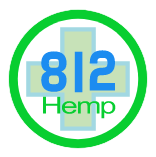In the realm of cannabis, one prominent compound that has garnered significant attention is Delta 9 THC. This cannabinoid, extensively studied for its potential medical applications, holds immense significance in the field. In this blog post, we aim to provide you with essential information about Delta 9 THC.
Delta 9 THC, also known as delta-tetrahydrocannabinol, is the primary psychoactive component found in cannabis, responsible for the intoxicating “high” experienced by users. It interacts with cannabinoid receptors in the brain, which are integral to the functioning of the endocannabinoid system. This system regulates various bodily functions, including pain, mood, and memory. By binding to these receptors, Delta 9 THC alters their activity, leading to changes in perception, mood, and behavior.
While Delta 9 THC is widely recognized for its psychoactive properties, it also demonstrates potential medical applications. For example, it may help alleviate chemotherapy-induced nausea and vomiting and possibly stimulate appetite in individuals with HIV/AIDS. Additionally, Delta 9 THC shows promise in relieving pain, inflammation, and muscle spasms. However, if you are considering the use of Delta 9 THC for its potential medical benefits, it is crucial to consult with your doctor beforehand.
For those seeking alternative options to Delta 9 THC, there are other cannabinoids with similar potential medical benefits. Cannabidiol (CBD), another cannabis-derived compound, has shown possible effectiveness in treating various conditions such as seizures and pain. Notably, CBD lacks the psychoactive effects associated with THC, making it legal in many states.
When contemplating the use of cannabinoids for their potential medical benefits, it is essential to have an open and honest conversation with your doctor to assess the risks and benefits. While cannabinoids are generally well-tolerated and considered safe, there are associated risks that should be thoroughly evaluated before initiating any treatment. Your doctor can provide personalized guidance and help determine the most appropriate course of action for your specific needs.
*The statements made regarding these products have not been evaluated by the Food and Drug Administration. The efficacy of these products has not been confirmed by FDA-approved research. These products are not intended to diagnose, treat, cure or prevent any disease. All information presented here is not meant as a substitute for or alternative to information from healthcare practitioners. Please consult your healthcare professional about potential interactions or other possible complications before using any product. The Federal Food, Drug, and Cosmetic Act requires this notice.



